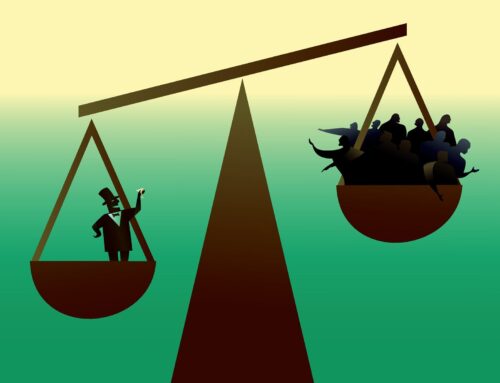Money makes the world go around. Yet, despite a healthy economy and low unemployment, most Americans live on the brink of financial crisis. Studies show that nearly 40% of the population doesn’t have enough cash resources to cover an unexpected $400 expense, while a $1,000 emergency or a missed paycheck would push many Americans into debt.
Faced with such a predicament, most people have few options except to dip into their retirement accounts, borrow more money, cut household expenses, take another job, or even file for bankruptcy. Fiscally, too many of us are freewheeling from one financial problem to another, never learning from our mistakes. But, as in all things, the more you know the better the outcome.
Knowledge is everything
America is a country plagued by financial illiteracy. We don’t like to talk about money, financial conflict breaks down marriages, and too often we are daunted by major personal finance decisions.
Unfortunately, it begins at an early age. Research shows that only 16% of U.S. students are required to take a personal finance class in school. While 70% of those between the ages of 18 and 39 know someday they will need to be more financially secure – they just don’t know how to get there.
This lack of knowledge translates into anxiety, even fear. It also has detrimental impacts in the workplace. Worries about money can lead to distracted, stressed employees. Meanwhile, in our communities, personal financial woes reduce the amount of money being spent in stores, restaurants, and real estate – stymying job creation.
Financial education matters – from K-12 to adulthood
I’ve been part of the financial community for more than three decades and I’ve seen first-hand what financial education can accomplish. Here at Canvas Credit Union, we feel it’s our responsibility to be there to help the citizens of our communities in the best way we can. As such, we’ve made it our purpose to never stop teaching our members and the community at large – young and old – how to responsibly manage their finances.
As an example, Canvas Credit Union supports financial literacy programs in Colorado schools – helping students learn savvy spending skills, how to manage budgets, and generally make learning about money fun.
We also recognize that the need for financial knowledge doesn’t end after a student masters the basics. As learners gain financial experience and plan for ambitious financial futures, they’ll encounter new situations where they’ll need to reinforce or expand their understanding of financial and economic systems. They must also develop skills that enable them to interpret the consequences of their financial decisions, such as late payments, or not planning for large, irregular expenses.
Read the rest of Steve Ferrero’s article at Denver Business Journal




